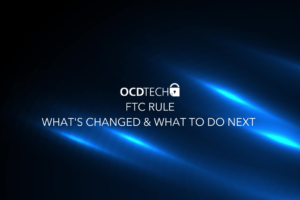In today’s tech-driven world, safeguarding data and ensuring systems run securely isn’t just a good idea — it’s a compliance must. That’s where ITGC audits step in. These audits are a foundational piece of the compliance puzzle, helping companies reduce risk and meet industry regulations. But what exactly do they cover, and why are they so important?
This guide takes a closer look at what ITGC means, the different types of controls involved, and how organizations can prepare to stay ahead of compliance requirements.
What Is ITGC?
ITGCs are a set of essential rules and procedures that help keep an organization’s technology landscape stable and secure. These controls deal with everything from who can access systems to how software is updated, data backed up, and new programs developed.
ITGC Meaning in the Compliance World
When an auditor reviews your ITGCs, they’re doing more than running through a checklist. They’re looking at whether your IT setup can support accurate financial reporting, protect sensitive data, and keep operations running smoothly. From a compliance standpoint, these audits are key to showing your systems can hold up under scrutiny — both internal and external.
Whether you’re aiming for SOX compliance, prepping for a SOC 2 report, or working toward alignment with frameworks like NIST, a solid ITGC structure is the bedrock everything else is built on.
IT General Controls Overview
The Three Types of IT Controls
Generally, IT controls fall into one of three categories:
- General IT Controls (GITC / ITGC): These deal with the broader environment your tech operates in.
- Application Controls: Controls that are embedded within software to ensure things run as they should.
- User Controls: Procedures that are applied outside of systems but still affect how secure and accurate your operations are.
An ITGC audit zooms in on the general controls area, including things like:
- Access Controls – Who can access what, and how permissions are set.
- Change Management – How changes to systems or applications are reviewed and approved.
- Backup and Recovery – Making sure critical data is safe and can be recovered when needed.
- SDLC (System Development Lifecycle) – How your software is built and maintained over time.
- Physical & Logical Security – Protection measures for both digital and physical assets.
Together, these controls help form the security backbone of any IT environment, keeping systems protected from misuse and ensuring the integrity of key business data.
Why ITGC Controls Matter
If a company lacks proper general IT controls, it leaves the door open to problems like:
- Security breaches
- Financial errors or even fraud
- Fines or penalties from regulators
- Unplanned downtime or disruptions
On the flip side, strong ITGC practices allow companies to:
- Keep sensitive info secure
- Prove compliance with regulations
- Avoid inaccuracies in reporting
- Control access and system changes more effectively
And it’s not just internal teams that care — clients, partners, and third-party vendors often expect organizations to have solid ITGCs in place before doing business.
ITGC Compliance and the Regulatory Landscape
Major Regulations That Rely on ITGC
A number of well-known compliance frameworks require reliable ITGCs, such as:
- SOX (Sarbanes-Oxley) – Focuses on systems that support accurate financial statements.
- SOC 1 & SOC 2 – ITGCs are a key element in both of these assessments.
- HIPAA – While health-focused, it demands secure IT practices to protect patient data.
- GLBA & the FTC Safeguards Rule – Require financial firms to shield customer data.
- PCI-DSS – Requires secure controls to protect cardholder data during transactions.
Risks of Falling Short
Failing to meet ITGC standards can lead to:
- Regulatory penalties and audits
- Delayed filings or audit issues
- Loss of customer or investor confidence
- Rising legal costs and insurance premiums
In some situations, poor ITGCs have led to restated financials or shareholder lawsuits. The stakes can be high.
How ITGC Audits Work
Key Audit Steps
A typical ITGC audit involves several key phases:
- Planning & Scoping – Determine which systems and controls are in the spotlight.
- Risk Assessment – Look at where potential problems could impact reporting or operations.
- Control Review – Check what policies and procedures are currently in place.
- Testing Controls – Auditors dig into how controls are applied and whether they’re working as intended.
- Reporting – Audit results include findings, gaps, and next steps to fix any issues.
The audit isn’t just about what’s documented — it’s about whether the controls are actively followed day-to-day.
Building a Strong ITGC Framework
For companies aiming to stay compliant and be audit-ready, developing a strong ITGC framework is essential. Some key steps include:
- Get Everything Documented – Make sure access, change, and recovery policies are clearly written —and followed.
- Automate Where It Helps – Use tools that log access, alert on unauthorized changes, and generate compliance reports.
- Train the Right Teams – IT and security staff should be crystal clear on their roles.
- Run Practice Audits – Internal reviews help spot problems before auditors do.
- Keep Controls Up-to-Date – As your systems evolve, your controls should evolve too.
Maintaining an ITGC checklist and aligning it to standards like ISO 27001, NIST, or COBIT can also help you stay one step ahead.
Common Audit Hurdles (And How to Handle Them)
Even with good intentions, many businesses stumble during ITGC audits. Some of the more frequent issues include:
- No Control Ownership – When nobody’s clearly in charge of maintaining controls.
- Old or Inaccurate Docs – Outdated policies that no longer match actual practices.
- Missing Change Logs – Systems change but there’s no paper trail.
- Excessive Access – Users keeping access after role changes or leaving the company.
Smart Fixes:
- Appoint someone to oversee ITGC-related responsibilities.
- Keep all documentation current and audit-ready.
- Use tools for role-based access and regular permission reviews.
- Track system changes with version control and automated logs.
Tackling these weak spots early on can save a lot of time — and headaches — later.
Why ITGC Audits Matter More Than Ever
With cyber threats on the rise and compliance requirements growing more complex, ITGC audits have shifted from a nice-to-have to a non-negotiable. They not only confirm that technical safeguards are in place — they also give peace of mind to regulators, customers, and investors.
As tools like automation and AI begin to play a bigger role in compliance monitoring, the fundamentals of ITGC still hold firm: clear policies, tested controls, and a proactive approach to keeping systems secure.
FAQs About ITGC Audits
Q1: What’s the difference between ITGC and application controls?
A: ITGCs are broad and cover systems as a whole. Application controls are specific to how individual software functions.
Q2: How often should companies do an ITGC audit?
A: Usually once a year, or any time there’s a major shift in your IT setup.
Q3: What industries need ITGC compliance the most?
A: Finance, healthcare, SaaS, legal, and retail—especially any dealing with regulated or sensitive data.
Q4: What’s typically found on an ITGC controls list?
A: Access controls, change logs, backups, disaster recovery, physical security, and how software is built and managed.
Q5: Is GITC just another term for ITGC?
A: Yep. GITC and ITGC mean the same thing—just different names for the same foundational controls.
At OCD Tech, we specialize in helping businesses navigate ITGC compliance with ease. Our team of cybersecurity and compliance experts delivers tailored assessments, control mapping, and remediation plans that make audits less stressful — and more successful. Contact us today




